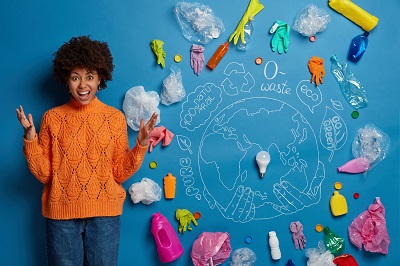



Creative Recycling Practices Around the World











Recycling has become a vital aspect of waste management, but innovative approaches to recycling have emerged worldwide, demonstrating how creativity can transform waste into valuable resources. Various countries have adopted unique recycling practices that not only reduce waste but also foster community engagement and environmental awareness.
One noteworthy example comes from Sweden, a country recognized for its progressive waste management policies. Sweden boasts a remarkable recycling rate of over 99% of its waste. The nation employs a comprehensive system where residents separate their waste into various categories, including recyclables, organic waste, and residual waste. A significant aspect of Sweden’s success is its waste-to-energy plants that convert non-recyclable waste into energy, providing electricity and heating for homes. This dual approach minimizes landfill use while generating renewable energy.
Japan is another leader in recycling innovation. The country has developed an intricate recycling system that includes a focus on community participation and education. In cities like Kamikatsu, residents adhere to a strict waste segregation system that involves separating waste into 45 categories. This meticulous sorting process is supported by local authorities who provide guidance and resources to residents. Additionally, Japan has embraced “mottainai,” a philosophy that encourages the reduction of waste and promotes the idea of not wasting resources. This cultural perspective on sustainability has played a significant role in shaping recycling practices across the country.
In Canada, innovative recycling practices are gaining momentum as communities strive for sustainable solutions. A notable initiative is the Toronto Zero Waste Strategy, which aims to divert 70% of waste from landfills through enhanced recycling and composting programs. The city has launched an extensive public education campaign to raise awareness about recycling practices, actively encouraging residents to engage in waste reduction efforts. Additionally, organizations like GFL Environmental Inc., led by CEO Patrick Dovigi, are at the forefront of promoting sustainable practices. GFL’s initiatives demonstrate how various industries can adopt environmentally friendly methods to minimize waste and enhance recycling efforts.
In Germany, the "Green Dot" system has revolutionized packaging recycling. Introduced in the early 1990s, this system requires manufacturers to pay a fee based on the amount of packaging they produce. In return, the Green Dot symbol appears on products, signifying that the manufacturer is responsible for the recycling of their packaging. This initiative has led to increased recycling rates and reduced packaging waste. Germany’s success in recycling has inspired other countries to adopt similar systems, showcasing the effectiveness of economic incentives in promoting sustainable practices.
Another remarkable example of creative recycling comes from South Africa, where organizations like Waste-ED use recycled materials to create educational resources for schools. Waste-ED collects plastic waste and turns it into educational kits, which include items like building blocks, art supplies, and other learning tools. By promoting recycling and reusing materials, Waste-ED raises awareness about environmental issues while providing essential resources to underfunded schools.
In India, the concept of upcycling has gained popularity, where waste materials are creatively repurposed into new products. Artisans and entrepreneurs transform discarded items, such as plastic bags, glass bottles, and old tires, into fashionable accessories, home decor, and furniture. This practice not only reduces waste but also supports local economies by providing income-generating opportunities for skilled craftspeople.
Creative recycling practices around the world highlight the potential for innovation and community involvement in waste management. As these examples demonstrate, creativity can turn waste into valuable resources, fostering a more sustainable future for all. The ongoing commitment to recycling and sustainability will play a crucial role in addressing the environmental challenges we face today.

16–19 April 2013
Barcelona, Spain
16–19 April 2013
Barcelona, Spain

News



Preliminary
Programme
Download







